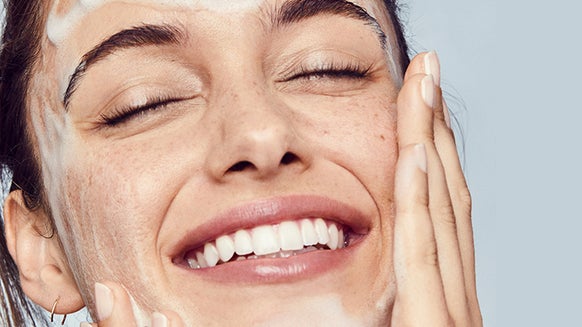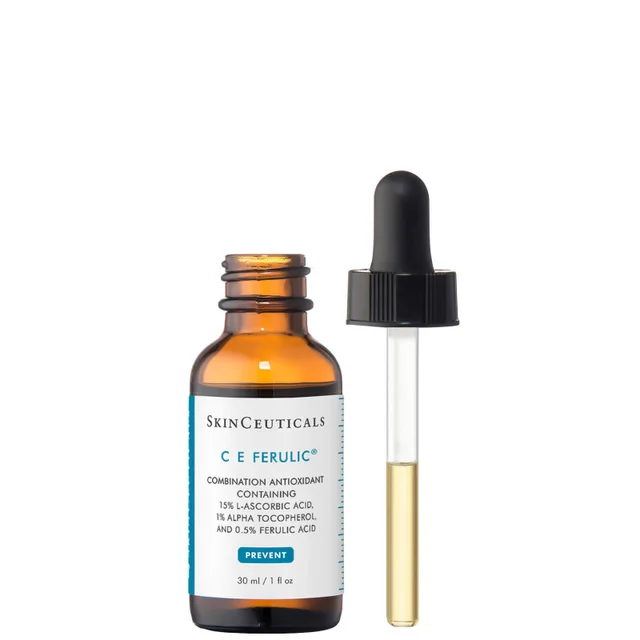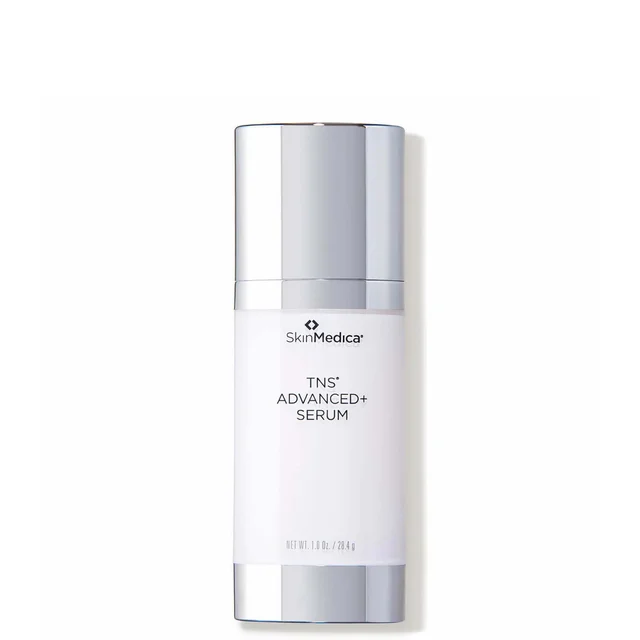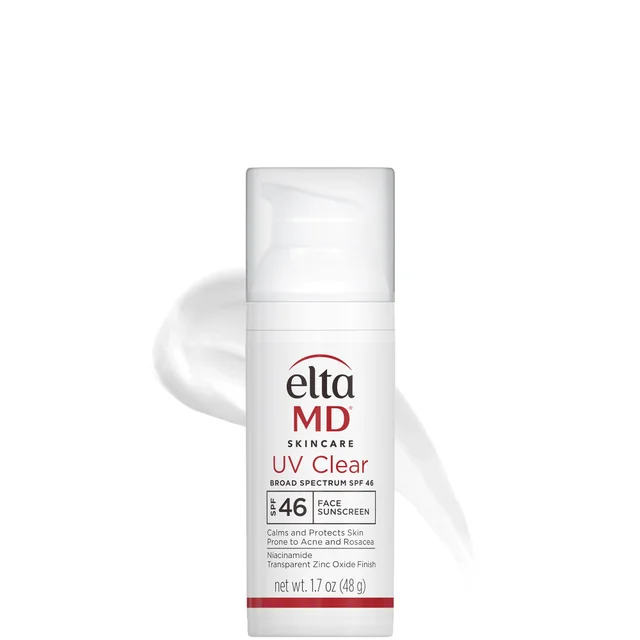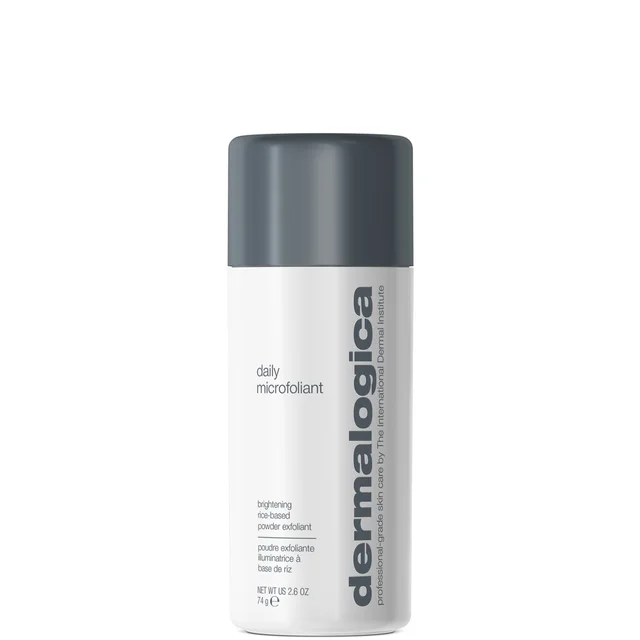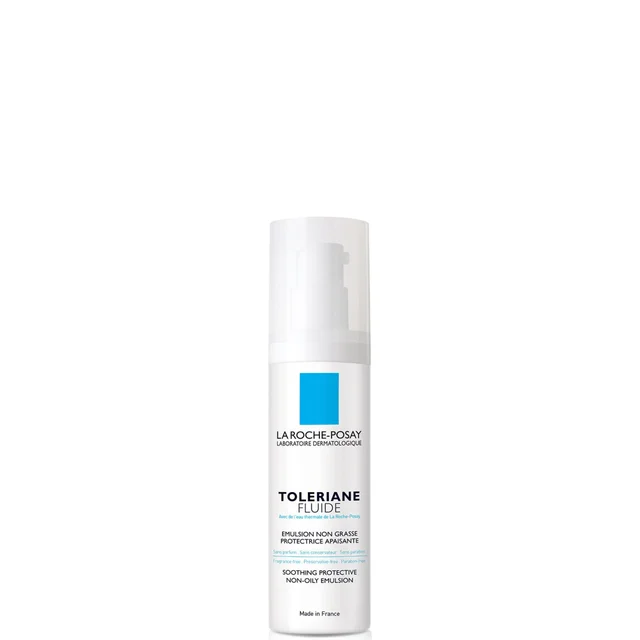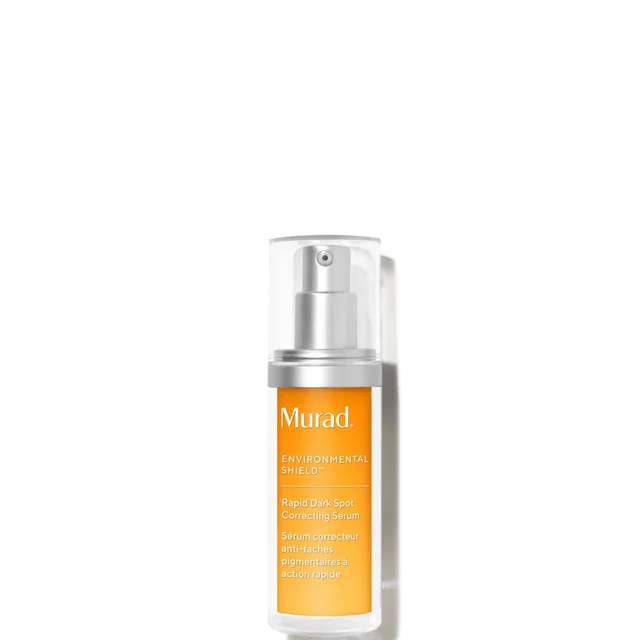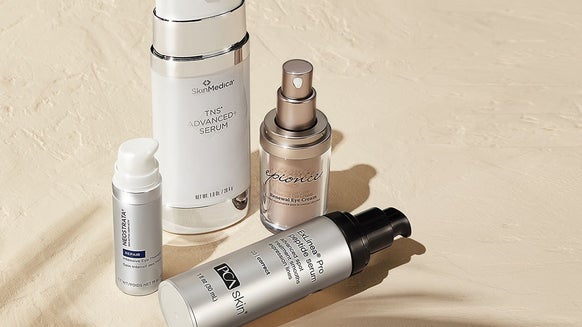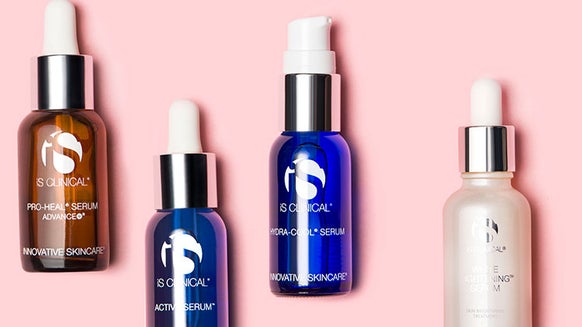Skin care shoppers are becoming savvier and demanding more from their products—and, as a result, professional skin care brands are having a serious moment. But what exactly does “professional skin care” mean? What are the benefits? And is it possible to assemble a professional-level skin care routine without the professional-level price tag?
What does "professional skin care" mean?
According to Donna Hart, MD, a board-certified dermatologist at Texas-based Westlake Dermatology, there isn't any definite set of criteria to define professional skin care lines. But in the general sense, professional skin care refers to products formulated by brands historically sold in dermatology offices, or brands developed by dermatologists themselves.
"[These] are companies that have often devoted a lot of time researching their ingredients and delivery vehicles to ensure the most effective delivery into their target area of skin, whether it be more superficial for pigment improvement, or deeper for things like collagen promotion or anti-inflammatory effects,” says Dr. Hart. “[Professional] brands often got their start being sold in dermatologists’ offices so they have been tried and tested. Therefore, you can have an increased level of efficacy and quality with these brands.”“In my opinion, what defines professional-level skin care is a commitment to developing novel products with ingredients that are rigorously scientifically tested to produce specific and reproducible results,” adds Dr. Margo Weishar of Springhouse Dermaesthetics, a Pennsylvania-based practice.
Are professional skin care brands worth the price tag?
So, now that you know what professional skin care is, let’s talk about who can benefit from it. And the answer? Pretty much everyone. All the time and energy devoted to research, development and sourcing the highest-quality ingredients typically yield much more effective products—and, with the right regimen, you can experience professional-level results you’d be hard-pressed to find with drugstore products.
“These products are so diverse that really most patients can benefit from professional lines,” says Dr. Hart. “In particular, patients with a specific area of concern such as dry, sensitive skin, pigmentary issues or signs of photo-aging may additionally benefit from certain professional products, as many have proprietary ingredients to best target these concerns.”
Now, there’s no denying that professional skin care brands are going to cost you more than something you pick up at your local drug store. But, like most things, you get what you pay for—and the extra cost is a direct result of the extra time, energy and quality that go into professional products.“Professional-level product lines (or medical-grade skin care, as it is often referred to) may spend more money on developing and testing new ingredients, introducing new concepts to the public, using cosmetically elegant bases and luxury packaging. They are ‘smaller batch’ and therefore more expensive to produce than mass-marketed products,” says Dr. Weishar. “They often cost more than drugstore brands—and are worth that cost when the degree of benefit is many times what a basic product can produce.”Tips for building a professional regimen
Professional skin care lines may be more expensive than other products—but that doesn’t mean you have to completely blow your budget to get great skin. Here are some tips on how to build your professional skin care routine if you're just starting out.1. Start with your dermatologist.
Before you dive into professional products, talk to your dermatologist, especially if you have sensitive skin. “These products may contain higher levels of ingredients which are not suitable to all skin types and must be recommended by professionals with a deep knowledge of all aspects of your skin, taking into account [your] specific needs, goals and challenges,” says Dr. Weishar. “Visiting your trusted dermatologist is always a great first step, because we can often help navigate the milieu of product choices available and recommend certain ingredients to look for (or to stay away from!) in products,” says Dr. Hart.
2. Supplement professional products with more affordable staples.
Professional-grade products can be expensive, but you don’t need them for every single product in your regimen. Professional products are great for more targeted treatments, but if you want to save some cash, it’s fine to supplement them with more affordable basics.“Don’t forget the basics—cleanser, moisturizer and DAILY sunscreen—before going on to add higher-level products,” says Dr. Weishar. “These are the foundation of your skin care, and it’s worth seeking out the best combination of these products for everyday use before adding [more expensive] professional-level products.”3. Choose one skin care concern—and treat it with one professional product.
If you want to experiment with professional skin care, there’s no need to go out and buy the entire line. If you want to see how a professional line works for you, choose one skin care concern you’re struggling with and invest in one professional product to see how it reacts with your skin.“If you are trying to build a regimen on your own, start with one product from one category and use it for several weeks—both to see how you tolerate it and to see whether you are seeing benefits,” says Dr. Weishar. “Most topical products take about 12 weeks of constant use to produce results—so stay with it for that amount of time to give it a chance to work.”Professional skin care brands to try
Professional skin care brands are a must-try for anyone who wants to see serious results with their skin. And the best part? You can try them at a range of price points.1. SkinCeuticals C E Ferulic (1 fl. oz.)
Since 1994,
SkinCeuticals has been combining the most efficacious clinical ingredients with botanical extracts to create products that bridge the gap between science and nature to both treat and nourish the skin.
The brand’s
Anti-Aging System—which includes
C E Ferulic, a vitamin C serum that firms and brightens the skin;
Resveratrol B E, a night serum rich in antioxidants; and
A.G.E. Interrupter, a targeted anti-wrinkle treatment—is widely considered one of the most effective professional skin care systems for reversing the signs of aging and protecting the skin from future damage.
2. SkinMedica TNS Advanced+ Serum (1 fl. oz.)
SkinMedica, which was founded by dermatologist Dr. Richard Fitzpatrick, is known in the professional skin care world for its innovative (and potent) ingredient profiles (like retinol, vitamin C and vitamin E, which packs a serious anti-aging punch). The brand’s biggest claim to fame? Their key products, the
TNS Advanced+ Serum and the
TNS Essential Serum, which leverage a patented blend of antioxidants, amino acids and naturally occurring proteins to reverse the signs of aging and sun damage, have been mentioned by several A-list celebrities for being so effective, with some even going as far as saying they mimic the results of plastic surgery.
3. iS Clinical Active Serum (1 oz.)
Known for being on the cutting edge of the latest skin care research and pharmaceutical-grade ingredients,
iS Clinical has gained a reputation for creating effective, professional-level products that both aggressively treat skin care issues while restoring balance to the skin. Staples like the
Youth Complex or
Active Serum deliver visibly noticeable results.
4. Lancer Skincare The Method: Polish Normal-Combination Skin (4.2 fl. oz.)
Developed by one of Hollywood’s top dermatologists, Dr. Harold Lancer,
Lancer Skincare is best known for “The Lancer Method,” a three-part system that leverages potent formulations and ingredient profiles to balance pH levels, boost cellular function and increase oxygen to the skin, leaving you with a glowing, radiant, youthful complexion that would look right at home on the red carpet.
The Method products can be purchased as
a set or
individually. For best results, pair with some of the professional line’s other standout products, like the
Caviar Lime Acid Peel or the
Omega Hydrating Oil.
6. EltaMD UV Clear Broad-Spectrum SPF 46 (1.7 fl. oz.)
When it comes to protecting your skin from the sun, you need professional-level products—and you won’t find better sun protection than
EltaMD. These potent, high-performing sunscreens (which offer varying levels of protection, ranging from SPF 30 to SPF 50) are formulated with zinc oxide, which offers the highest level of protection from harmful UVA and UVB rays. Its most popular sunscreen,
UV Clear Broad-Spectrum SPF 46, remains Dermstore’s
most-reviewed and best-selling sunscreen.
7. Eminence Organic Skin Care Clear Skin Probiotic Cleanser 8.4 fl. oz
Most professional lines leverage clinical ingredients. But
Eminence Organic Skin Care harnesses the best natural, organic ingredients to deliver professional-level results for a variety of skin types and concerns—without the use of any harsh ingredients.
Eminence Organic Skincare products (like the
Clear Skin Probiotic Moisturizer and the
Bamboo Firming Fluid) are celebrated by skin care enthusiasts thanks to its efficacy and potent botanical formulations—but the brand is also celebrated for its commitment to green, sustainable practices in all areas of their business, from farming to packaging.
8. Dermalogica Daily Microfoliant (2.6 oz.)
Dermalogica products, which were developed by the founder of The International Dermal Institute, have been a go-to for fans of professional skin care for the past three decades. This highly respected line—which includes both classics (like the
Special Cleansing Gel) and cutting-edge (like the
Daily Microfoliant powder exfoliant) products—is a must-try if you want to elevate your regimen to deliver professional-level results.
9. PCA SKIN Clearskin (1.7 oz.)
If you’re looking for a mid-level professional brand with high-level accolades, look no further than
PCA Skin. The esthetician-dermatologist team behind PCA Skin has been bringing professional products to the market for well over 25 years.
PCA Skin focuses on creating high-quality skin care staples for a variety of skin types and skin care concerns (like the
Collagen Hydrator, a must-have for treating weather-related redness, or
Clearskin, a lightweight moisturizer for oily skin types)—and no matter what products you add to your regimen, the result? Skin that looks like it’s been treated by a professional.
12. La Roche-Posay Toleriane Sensitive Fluide (1.35 fl. oz.)
Apparently, France is full of thermal springs that flow with healing waters. And the spring in La Roche-Posay, France was the birthplace of the
La-Roche Posay line. Recommended by over 25,000 dermatologists across the globe, these products (like the
Toleriane Sensitive Fluide and the
Active C Eyes) promise to soothe sensitive and inflamed skin with an infusion of thermal spring water gentle enough for any skin type.
13. Murad Rapid Dark Spot Correcting Serum 1 oz
Developed by Dr. Howard Murad, one of the country’s most respected dermatologists, the
Murad line has a reputation for creating in-office-level results from the comfort of your own home. This highly efficacious line (which includes cult favorites like the
Rapid Dark Spot Correcting Serum and the
Rapid Collagen Infusion) has targeted regimens for a variety of skin care concerns, including acne, dryness and hyperpigmentation.


